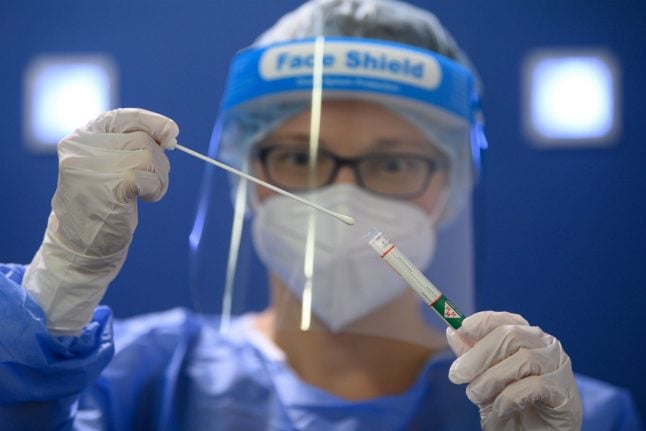Germany’s health offices registered 2,143 new cases, according to the Robert Koch Institute (RKI) on Thursday September 24th.
On August 22nd there were 2,034 new cases, and on Saturday September 19th the highest number of new cases (2,297) since April were registered.
“After a temporary stabilisation of the number of cases, a further increase in transmissions in the German population is currently being observed,” said the RKI.
“The pandemic is really in full swing now,” said Charité Berlin virologist Christian Drosten on Wednesday.
Looking ahead to the autumn, he said, a much closer look at developments abroad – including other countries' curbs on public life – would be necessary.
“We must stop talking about things like (reopening) football stadiums,” he said. “That is really completely misleading.”
READ ALSO: German coronavirus situation 'could escalate like other European countries', warns virologist
Higher numbers of people testing positive
An indication that the infection situation is picking up again is the recent large number of coronavirus tests in Germany coming back positive.
According to the RKI management report, the so-called positive rate was 1.19 percent in the week from September 14th to 20th (up from 0.86 the previous week) – the highest value in more than 10 weeks.
There are also signs of a trend in the nationwide 7-day incidence: The number of new infections recorded per 100,000 inhabitants within one week was 13.2 on Wednesday, up from 11.5 a week ago.
The RKI reported that the 7-day incidence is currently very high in the states of Bavaria and Berlin, significantly higher in Hamburg and North Rhine-Westphalia, and slightly higher than the national average in Baden-Württemberg and Bremen.
There has hardly been any change so far in the still low occupancy rate of intensive care beds. According to experts, this is partly due to the fact that a proportion of younger people – who rarely develop symptoms – have recently been infected.
More older people becoming infected
Currently, however, the number of cases in the older population is rising slightly, according to the RKI. “If more elderly people become infected again, more severe cases and deaths will occur again,” they said.
The peak in the number of new infections reported daily was more than 6,000 at the end of March, beginning of April.
READ ALSO: LATEST: Germany sees highest daily coronavirus infection toll since August
In spring, however, there had been much less testing – and the number of new infections detected is partly related to the number of tests.
According to RKI data from Thursday morning, at least 278,070 people in Germany are confirmed to have picked up the Sars-CoV-2 virus since the beginning of the outbreak.
A total of 9,428 people have died, with 19 further deaths reported within 24 hours on Thursday.



 Please whitelist us to continue reading.
Please whitelist us to continue reading.
Member comments